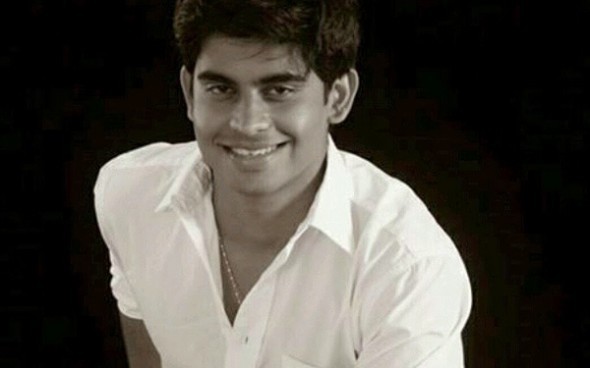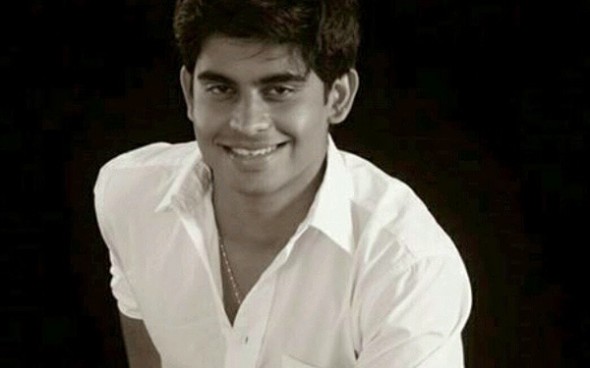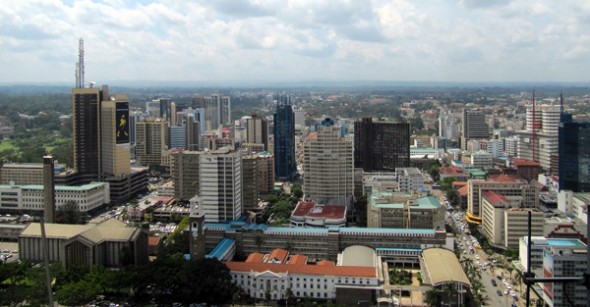
Meet Heshan de Silva, Kenya’s 25-year-old dollar multimillionaire
Nine years ago Heshan de Silva was a suicidal, alcoholic, drug-addicted dropout. Seven years ago he used US$116 to start a small insurance business. Today the 25-year-old Kenyan venture capitalist, founder of the De Silva Group, is worth over $10-million. The De Silva Group is the holding company for DSGVenCap, a firm that makes seed […]


Nine years ago Heshan de Silva was a suicidal, alcoholic, drug-addicted dropout. Seven years ago he used US$116 to start a small insurance business. Today the 25-year-old Kenyan venture capitalist, founder of the De Silva Group, is worth over $10-million.
The De Silva Group is the holding company for DSGVenCap, a firm that makes seed investments in Kenyan entrepreneurs with innovative ideas for new businesses, with the specific aim of reducing poverty in the country. De Silva also mentors young Kenyans, sharing business success tips and personal advice.
One piece of advice is to go for it, not wait for a “golden ticket” to venture into business. “Don’t scratch your head saying there is no financing,” he says. “With what you have, what can you do to achieve your goal? Investors like people who have taken that initiative.”
De Silva graduated from high school at the age of 16, and immediately went on to university. His parents were reasonably well-off, so they sent him to the US, where he chose the University of Miami, Florida – for its climate.
“It was an interesting experience,” he says wryly. “I’d come from a very sheltered upbringing. Going to Miami and having all that freedom was quite difficult.”
He was young, undecided about his future, and hated lectures. Soon he was cutting class and sitting on the library steps, being paid to write essays for fellow students who preferred to party.
De Silva’s essay-writing venture was soon earning him up to $600 a day, and that’s when the wheels came off. He had money, and was spending it – mainly on alcohol, and soon on drugs as well.
Far from Kenya, failing all his classes and an addict, Da Silva eventually tried to kill himself. His family fetched him home, and he slowly turned his life around. Today, Da Silva is one of his country’s brightest young leaders, a dollar millionaire investing in people and new ideas.
Watch a feature on Heshan de Silva from the Kenyan K24TV television series Young Rich:
http://www.youtube.com/watch?feature=player_embedded&v=VGT-nR5TTVA
Dropping out and getting ahead
De Silva thrives on motivating and encouraging young people. His one mission is to change the perception that a university degree is essential to success.
“If you don’t have a degree, if you don’t have even a high school diploma, you will succeed if you plug a need,” he says. “You don’t require a piece of paper to be certified to do business.
“I think education enables you to open your mind to a lot of possibilities, but at the end of the day you are narrowed to what you have studied and you lock out everything that is going on around you. The counter to that is people like me are not narrowed to anything; we see opportunity everywhere.”
Seven years ago De Silva invested his 10 000 Kenyan shilling ($116) allowance from his parents to start a small business selling travel insurance to the poor. Going for as little as KSh5 – less than five US cents – it was bundled with long-distance bus tickets and could be bought via mobile phone. By the end of the year he had made KSh90-million, over a million US dollars.
“If you work hard and don’t set limits for yourself you can get there,” he says. “I am testament to that.”
The ideas business
After earning his first million, De Silva moved on to financing ingenious ideas. His DSGVenCap has so far invested in 22 000 people and has created 17 000 businesses. “This is the ideas sector, where you can convert ideas into viable companies.”
Today one of the youngest venture capitalists in Africa, De Silva chooses the projects carefully, and has grown the De Silva Group into one of the region’s most enterprising entities. It has holdings in commodities, technology, renewable energy, insurance, robotics, advertising, hospitality, fashion, rural road construction, hardware and agribusiness, and works with major East African corporations such as Equity Bank, Housing Finance Corp, Scanad, and East African Breweries Limited.
DSGVenCap invests an average of $10 000 to $15 000 in each idea, and helps the entrepreneurs it funds to execute their ideas. So far, company and its beneficiaries have created jobs for some 70 000 people.
“When we started this we wanted to impact people on a large scale,” De Silva says. “The mandate of our group is to reduce poverty from 60% to 40% in this country within five years.”

Affordable services for a wider pool of consumers
DSGVenCap has a 70% success rate, with three of its companies crossing the $10-million valuation mark. One of its businesses is an advertising company that offers GPS-enabled adverts on public transport for KSh150 ($1.74) and whose model has been patented in dozens of countries worldwide.
The Gourmet Nomads, another lucrative business, distributes more than 1 000 lunches to businesses in Nairobi every day for KSh150 ($1.74) per meal. Offering affordable services, be it in advertising or packed lunches, De Silva says, is important because it appeals to a wider range of customers.
“I never take a majority stake in a business – usually around 25% to 35%, and that’s it. Even if we are financing an idea completely, we will never cross 40% ownership,” he says, adding that “trust is everything in our line of work”.
“The really nice thing about it is that we are not looking for the next big thing. We are not looking for huge businesses. We are targeting the poorest people in this country. These are people who make $2 or less a day. They do not have massive dreams of owning [a five star hotel]. So if it’s just a need in your street or neighbourhood, and you create a business that can employ three or four people and make money at the end of the month, that is gold for us.”
Expanding portfolio
DSGVenCap not only invests in start-ups, it also monitors the new businesses’ sustainability. De Silva relies on his team of 400 who listen to pitches and ensure the ideas presented to the company are executed. “The number of requests that we get every day is phenomenal.”
The company plans to invest in 50 000 businesses a year and has access to up to $2-billion over the next five years. It works in partnership with two New York-based funds.
“There are 11-million unemployed people here, who are sitting somewhere wondering what they are going to do,” De Silva says. “Imagine if you can impact a fraction of those people. How fast would this country grow across many sectors?”
De Silva is galvanised by the change in the lives of the entrepreneurs he funds. Once struggling to put food on the table, these individuals can now afford to dine in the finest restaurants.
He is also inspired by how his New York partners work. “They look at numbers as just that. They have no emotions tied to money. Having that attitude is brilliant when you are running a business.”
Spending money irresponsibly is something De Silva knows all about. “When I started making a decent amount of money, there was no limit to how much I just wanted to throw at stuff. It was very irresponsible. It went full circle and I decided to live a simple life. I don’t need anything fancy. I believe very much in stewardship.”
To get money, don’t aim for it
De Silva’s message to Africa’s young aspiring entrepreneurs is to identify an actual need. “Don’t wait for financing. Plug in with what you have and address that need. Build a business and the money will follow,” he says.
“The youth make a mistake when they view money as the main goal of doing business. Money should never be the goal when you are in business. It should be about how you are going to grow the business and scale within your means. You will find that money will follow.
“If your aim is to be a billionaire, you are not going to get there. If your aim is to impact thousands of people with a product and you can actually do that, you will get there. Always look to scale and you will find that success will follow you.”
Success comes from hard work, a great passion and a love for what you do, De Silva says. “It is incredible that a kid who has no university degree can rise so quickly. What a great country Kenya is – there are so many opportunities. I want to keep growing our businesses. The goals are limitless.”
By: Melissa Jane Cook
